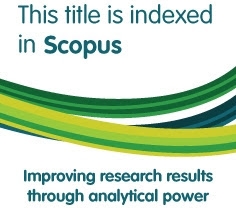To Combat Extremism, How to Frame Religion Matters: Southeast Asia in Comparative Perspective
Abstract
Indonesia, Malaysia, the Philippines, and Singapore are post-colonial states with diverse populations. By looking at how each state has combated Islamic extremism, this paper analyzes the state-Islam relations to identify their commonalities and differences. This paper argues that the Malaysian and Singaporean states frame Islam as a racial issue, thereby making Islam as public a matter is possible in order to achieve racial harmony. On the other hand, Indonesian and the Philippines states frame Islam as a private matter. Indonesian state lets mass Islamic organizations to manage Islam for the faithful. While in the Philippines, making the state’s influence over Islam is less effective, and it is further amplified by the state’s inability to tame Muslim’s grievances. These different policy patterns are critical in understanding the state-Islam relations during national crises, especially to explain how those countries managed the crises around the September 11, 2001 terrorist attack.
Keywords
Full Text:
PDFReferences
Anshari, Saifuddin. 1985. “Islam or the Panca Sila as the Basis of the State.” In Readings on Islam in Southeast Asia, Singapore: Institute of Southeast Asian Studies, 221–28.
Anwar, Zainah. 2005. “Law-Making in the Name of Islam: Implications for Democratic Governance.” In Islam in Southeast Asia: Political, Social and Strategic Challenges for the 21st Century, Singapore: Institute of Southeast Asian Studies, 121–34.
Aslam, Mohammad Mizan. 2009. “A Critical Study of Kumpulan Militant Malaysia, Its Wider Connections in the Region and the Implications of Radical Islam for the Stability of Southeast Asia.” Ph.D. Thesis. Victoria University of Wellington.
Bakar, Osman. 2006. “Islam and the Malay Civilizational Identity.” In Islam in Transition: Muslim Perspectives John J. Dohohue and John L. Esposito, New York, NY: Oxford University Press, 480–87.
Barr, Michael D. 2014. “Singapore’s Lee Kuan Yew.” In Makers of Modern Asia, ed. Ramachandra Guha. Cambridge, Massachusetts: The Belknap Press of Harvard University Press.
Bendix, Reinhard. 1978. Kings Or People: Power and the Mandate to Rule. Berkeley and Los Angeles, CA: University of California Press.
Berger, J.M. 2018. Extremism. London: MIT Press.
Bertrand, Marianne, Simeon Djankov, Rema Hanna, and Sendhil Mullainathan. 2007. “Obtaining a Driver’s License in India: An Experimental Approach to Studying Corruption.” The Quarterly Journal of Economics 122(4): 1639–76.
Bush, Robin. 2008. “Regional Sharia Regulations in Indonesia: Anomaly or Symptom?” In Expressing Islam: Religious Life and Politics in Indonesia, eds. Greg Fealy and Sally White. Singapore: Institute of Southeast Asian Studies.
Comber, Leon. 1988. 13 May 1969: A Historical Survey of Sino-Malay Relations. Singapore: Grahm Brash (Pte) Ltd.
Crouch, Harold A. 1996. Government and Society in Malaysia. New York: Cornell University Press.
Ferrer, Miriam Coronel. 2005. “The Moro and the Cordillera Conflicts in the Philippines and the Struggle for Autonomy.” In Ethnic Conflicts in Southeast Asia, eds. Kusuma Snitwongse and W. Scott Thompson. Singapore: ISEAS Publishing, 109–50.
Fukuyama, Francis. 2005. State Building: Governance and World Order in the Twenty-First Century. London: Profile Books.
Hamid, Ahmad Abdul. 2007. “Islam and Violence in Malaysia.”
Harari, Yuval Noah. 2015. Sapiens – A Brief History of Humankind. New York: Harper.
Ignatow, Gabriel. 2009. “Figurative Speech and Cognition: Metaphoric Analysis of a Shipyard Union Dispute.” In Culture, Social Movements, and Protest. Ed. Hank Johnston, Burlington, VT: Ashgate Publishing Company, 157–78.
Legge, John David. 2003. Sukarno: A Political Biography. Singapore: Archipelago Press.
Majul, Cesar Adib. 1999. Muslims in the Philippines. Philippines: University of the Philippines Press.
McCleary, Rachel, and Robert J. Barro. 2019. The Wealth of Religions. Princeton: Princeton University Press.
Mercado, Eliseo R. 2008. “The Effect of 9/11 on Mindanao Muslims and the Mindanao Peace Process.” In Asian Islam in the 21st Century. Ed. John L. Esposito, John O. Voll, Osman Bakar, Oxford, New York: Oxford University Press, 229–44.
Mohamad, Mahathir. 2011. A Doctor in the House: The Memoirs of Tun Dr Mahathir Mohamad. Singapore: MPH Group Publishing.
Pew Research Center. 2010. “Muslim Population of Indonesia.” Pew Research Center’s Religion & Public Life Project. https://www.pewforum.org/2010/11/04/muslim-population-of-indonesia/ (August 11, 2018).
Polletta, Francesca. 2009. “Storytelling in Social Movements.” In Culture, Social Movements, and Protest, Burlington, VT: Ashgate Publishing Company, 33–53.
Ramage, Douglas E. 1995. Politics in Indonesia: Democracy, Islam and the Ideology of Tolerance. New York and London: Routledge.
Sidel, John T. 2006. Riots, Pogroms, Jihad: Religious Violence in Indonesia. Ithaca, New York: Cornell University Press.
Tan, Andrew. 2006. Southeast Asia: Threats in the Security Environment. Singapore: Marshall Cavendish International.
Tan, Eugene K. B. 2020. “Defeating the Scourge of Terrorism: How Soft Law Instruments in Singapore Can Develop Societal Trust and Promote Cooperative Norms.” Interreligious Relations (20): 1–22.
Tilly, Charles. 1975. The Formation of National States in Western Europe. Princeton, New Jersey: Princeton University Press.
Von der Mehden, Fred R. 2007. “Islam in Indonesia in the Twenty-Frist Century.” In Asian Islam in the 21st Century, Oxford, New York: Oxford University Press.
Wurfel, David. 1988. Filipino Politics: Development and Decay. Ithaca New York: Cornell University Press.
Yulisman, Linda. 2019. “Indonesia to Release Jemaah Islamiah Founder from Jail next Week.” The Straits Times. https://www.straitstimes.com/asia/se-asia/indonesia-to-release-ji-founder-from-jail-next-week.
DOI: https://doi.org/10.36712/sdi.v28i3.23955
Refbacks
- There are currently no refbacks.

All publication by Studia Islamika are licensed under a Creative Commons Attribution-NonCommercial 4.0 International License.
Studia Islamika, ISSN: 0215-0492, e-ISSN: 2355-6145
View My Stats
